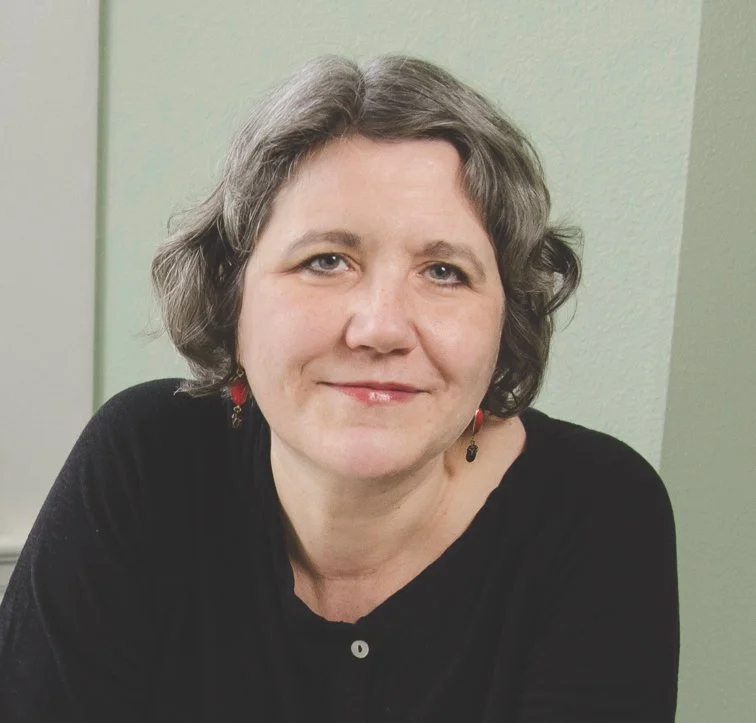Fall 2018 Newsletter: Foundation Reflections from Our Board President
FOUNDATION REFLECTIONS
AMY SAMPLE WARD, BOARD PRESIDENT
The lessons my dad taught me about leadership guide me every day. They have shaped who I am and the work that I do, but they’re also the core of my belief that each of us has a responsibility to use the power and privilege we have to disrupt oppression. I have approached my role as the Board President of the Women’s Foundation for the past year with similar conviction and commitment, and I know I will continue to draw upon my dad’s lessons as we enter a transformative year for the organization.
My dad worked as a construction foreman for most of his career. He would talk often to my brother and I about leadership - what it meant to him, what he thought it should look like, and the ways every one of us is a leader. We learned what positional power and privilege meant and the responsibility that came with them. He knew that even as someone without vast resources or access to political power, he could use his positional power and privilege to do the right thing. And doing so was an expectation and responsibility.
My dad believed that being a leader meant showing up for the people that depended on him every day, whether it was on the jobsite, in a courtroom, or in a hospital room. He was proud to hire women laborers, electricians, and carpenters because he knew that the more diverse his team, the better their work would be (and thanks to our terrific partners at Oregon Tradeswomen and other organizations like them there are more and more women in those roles).
He made sure that his intentions and actions to hire a diverse team were clear to those who may not have been happy to work alongside folks that looked different than them - whether it was gender, or race, or background - and that folks were welcome to leave if they disagreed. He understood that leadership meant making mistakes and learning from them as an individual and as a team so that everyone could change for the better.
For me, talk about progressive ideals is empty without making the deep changes necessary to see those ideals take shape. For the Foundation, that means we can’t talk about an Oregon where all women, girls, and femmes can thrive without recognizing and dismantling the ways our programs, policies, and practices have created harm, reinforced white supremacy culture, and prevented members of our community from truly thriving.
I come to my current role as Board President with enormous privilege - I’m white, able-bodied, educated, married, insured, employed, a resident and a citizen, and much more. Like so many of you, I’m convinced that with my privilege comes the responsibility to learn, grow, and change. With an open heart, I invite each of you who hold many of the same privileges to join me in our journey, to ensure that the Foundation staff, board, and community is not entirely made up of, or for, people like me.
The work to transform our Foundation (and state, and country) to be more equitable, inclusive, and diverse will require all of us to play a role. And for folks with privilege, especially white women like me, we must call each other into action and do the necessary work to understand the root causes of systemic oppression. I see that my most important role as Board President is to step back, listen, support those most impacted, and recognize my responsibility in carrying a greater share of the burden that this work requires.
Work to advance racial equity - to become an anti-racist organization - is not easy nor is it straightforward. I mess up all the time. All of us mess up all the time. And we will keep messing up. But fear of making mistakes can’t stop us from trying again, learning, and moving forward together.
I’m looking forward to sharing more about where we’ve been and where we’re going in the months to come. Exciting changes are coming, including fundamental shifts in our membership structure, grantmaking, policies, and even some of the very language we use to talk about this work.
Thank you for the support you’ve offered us in so many different ways as we’ve been on this journey. I thank you in advance for your continued support as we continue to make mistakes, learn, and move forward together.
Onward,
Amy Sample Ward
Foundation Updates
IMMEDIATE IMPACT FUND
This year our Immediate Impact Grant to address unexpected and urgent needs for nonprofits working on gender equity will be awarded quarterly through June 2019. The next deadline for your ask to be considered is December 31st. Please reach out to our Program Manager, Ami at ami@w-for.org to see if you are eligible.
GRANTEE SPOTLIGHT
This quarter, we're spotlighting five of our Women's Foundation grantees, who are participating in this year's Willamette Week Give Guide. Please consider donating to support their continued work to advance gender equity!
Adelante Mujeres
Momentum Alliance
Oregon Justice Resource Center
Oregon Tradeswomen
Rose Haven
MEMBER SPOTLIGHT
Name: Deborah Steinkopf
Age: 55
Occupation: Nonprofit Consultant
Member of the Women’s Foundation since… 2015
Gender pronouns: She/Her
Why are you a member of the Women’s Foundation?
Gender equity is important to me and I believe in the mission of Women's Foundation of Oregon to bring philanthropic resources to support initiatives that advance the status of women and girls in Oregon, as well as prepare and disseminate impactful research like Count Her In. I’m proud to be a small part of this important work as a member of the foundation.
What does being anti-racist mean to you?
As a white woman, being anti-racist is fundamentally a process of coming to an understanding of white racial identity and its privileges within a racist system and replacing that with a positive, anti-racist identity. One of the functions of racism is that white people generally don’t carry race as an identity, which means as a white person you are privileged to be yourself in the world, to consider yourself the norm, to not be othered. For me, being anti-racist means coming to grips with that power and privilege, to be mindful of how advantaged I am as a white person, as well as being aware of the impact of structural racism on others.
How do you think about intersectionality and how does it surface in your life?
People’s lived experiences are so much more complex than we take time to imagine. Intersectionality provides the framework for understanding multiple identities, and multiple oppressions based on those identities, and how they interact. It’s a powerful lens for looking at the experiences of women and girls and nonbinary folks, from all backgrounds. It’s been powerful for me, too, as a basis for practicing empathy and inclusivity. I believe we can only make our community stronger by lifting everyone up. It’s both an equity project and an empathy project for me.
What quality do you most admire in others?
Tenacity. I’m in my 50s and I’m impatient. I want to work with others to get shit done. That takes tenacity. And fearlessness. Okay, so there’s two qualities...but they work together.
Which talent would you most like to have?
I refuse to engage in wishful thinking along these lines. It’s taken me a long time to love and accept my imperfect self and to stop apologizing for my own authenticity.
What was your first volunteer experience?
My first volunteer experience was organizing kids’ activities at a domestic violence safe house in the early 1980s when I was an undergraduate. I loved showing up every week to hang out with the kids, reading, coloring, playing games, creating space for them to just be kids. As a result, I got involved in the domestic violence movement early on and remain a strong advocate for survivors and helping their kids develop resiliencies.
What thought or intention do you want to leave with Women's Foundation members today?
These are challenging times, for all the reasons we are all very well aware. But it’s also a time of important progress in terms of elevating gender equity issues and intersectional frameworks. And a time for hope. There’s a common language now for understanding and addressing oppressions. We’ve got toxic masculinity running scared, which is why it’s so loud right now. One of the most inspiring books I’ve read is Rebecca Solnit’s “Hope in the Dark,” which is a great argument for hope. She tells us “this is an extraordinary time full of vital, transformative movements that could not be foreseen.” She tells us now is not the time for despair. It’s the time to act. It’s a sense of hope that motivates me to act.
Thanks so much, Deborah!
MEMBERSHIP MATTERS
Won't you join our growing community and strengthen our collective force for gender equity in Oregon?


